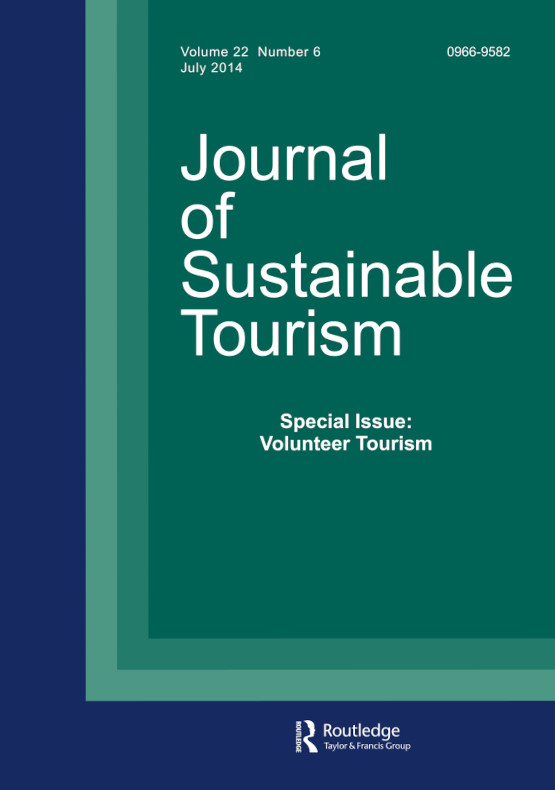Children and overtourism: a cognitive neuroscience experiment to reflect on exposure and behavioural consequences
IF 7.8
2区 管理学
Q2 GREEN & SUSTAINABLE SCIENCE & TECHNOLOGY
引用次数: 0
Abstract
As tourism research has paid limited attention to children, this study investigates children’s reactions to tourism development, focusing on their unique viewpoints on the World Heritage Site of Dubrovnik, Croatia. It employed cognitive neuroscience methods with 397 participants, revealing that, despite their preference for sustainable tourism scenarios, children exhibit a notable fixation on images emblematic of overtourism and associated challenges, particularly overcrowding. When exposed to sustainable tourism photographs, there was an observable increase in physiological arousal, albeit not as pronounced as when confronted with an overtourism scenario. Intriguingly, regardless of the scenario, children predominantly expressed neutral emotions. Within the sustainable tourism context, gender differences manifest as girls exhibiting lower levels of place attachment. Furthermore, inner-city residents exhibit diminished levels of nature connectedness, and emotions are indirectly linked to nature connectedness, place attachment, or pro-environmental behaviour. Conversely, in the unsustainable scenario, older children and inner-city residents exhibited a heightened sense of neutrality towards overtourism-related concerns, whereas those outside the inner city displayed a stronger affinity for nature connectedness. Positive emotions were negatively associated with nature connectedness and pro-environmental behaviour but positively associated with place attachment. Accordingly, this study advocates a more inclusive and sustainable future through children’s empowerment in tourism development.儿童和过度旅游:一个反映暴露和行为后果的认知神经科学实验
由于旅游研究对儿童的关注有限,本研究调查了儿童对旅游发展的反应,重点关注他们对克罗地亚杜布罗夫尼克世界遗产地的独特看法。该研究采用了认知神经科学的方法,对397名参与者进行了调查,结果显示,尽管儿童更喜欢可持续的旅游场景,但他们对过度旅游和相关挑战(尤其是过度拥挤)的象征形象表现出了显著的关注。当接触到可持续旅游的照片时,生理唤起有明显的增加,尽管不像面对过度旅游情景时那么明显。有趣的是,不管在什么情况下,孩子们主要表达的是中性情绪。在可持续旅游背景下,性别差异表现为女孩表现出较低的地方依恋水平。此外,市中心居民的自然连通性水平下降,情感与自然连通性、地方依恋或亲环境行为间接相关。相反,在不可持续的情况下,年龄较大的儿童和内城居民对过度旅游相关的问题表现出高度的中立意识,而内城以外的人则对自然联系表现出更强的亲和力。积极情绪与自然联系和亲环境行为负相关,但与地方依恋正相关。因此,本研究主张通过赋予儿童权力参与旅游发展,实现更加包容和可持续的未来。
本文章由计算机程序翻译,如有差异,请以英文原文为准。
求助全文
约1分钟内获得全文
求助全文
来源期刊

Journal of Sustainable Tourism
Multiple-
CiteScore
23.10
自引率
8.90%
发文量
91
期刊介绍:
The Journal of Sustainable Tourism advances critical understanding of the relationships between tourism and sustainable development. The journal publishes theoretical, conceptual and empirical research that explores one or more of the economic, social, cultural, political, organisational or environmental aspects of the subject.
The Journal of Sustainable Tourism encourages critical views, as well as new ideas and approaches in relation to the theory and practice linking tourism and sustainability.
 求助内容:
求助内容: 应助结果提醒方式:
应助结果提醒方式:


